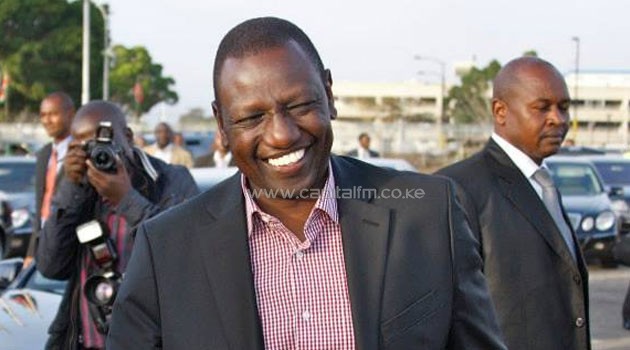
Ruto said the proposals by President Uhuru Kenyatta were in accordance with provisions in the Constitution and followed guidance from Media Council of Kenya (MCK) and the Commission for the Implementation of the Constitution/FILE
Ruto said the proposals by President Uhuru Kenyatta were in accordance with provisions in the Constitution and followed guidance from Media Council of Kenya (MCK) and the Commission for the Implementation of the Constitution (CIC).
“The decision taken by the President was informed by input from the MCK and CIC,” Ruto explained.
He said the Executive and the Legislature cannot make decisions that contravene the Constitution.
According to him, the media has not exploited means of having their concerns addressed since there is a legal option they can pursue.
“All is not lost for the media because the media have an option of seeking redress from the courts,” he asserted.
On Thursday, the National Assembly approved all recommendations presented by President Kenyatta on the controversial law even after the chairman of the parliamentary committee on Energy, Information and Communication Jamleck Kamau stated that they had arrived at a consensus with media stakeholders on contentious clauses.
The media earlier in the week held countrywide demonstrations to protest against the Bill which they argued will gag the media.
They argued that the President’s memorandum on the KICA Bill contained unconstitutional clauses and contradicted recommendations that will largely impact the media environment negatively.
The contradictory and punitive clauses have raised fresh fears of targeted State gagging of the media and individual journalists.
Article 34 (2) (b) of the Constitution on the freedom of media says: The State shall not penalise any person for any opinion or view or the content of any broadcast, publication or dissemination.
President Kenyatta’s memorandum proposed an amendment to impose a fine of not more than Sh20 million on any respondent media enterprise and a fine of not more than Sh500,000 on any journalist adjudged to have violated this Act.
The meeting with media stakeholders had resolved that at least three bodies were required to give full effect to Article 34 of the Constitution including the Media Council of Kenya to regulate and enforce ethical, code of conduct and professional standards.
The second body would be the State owned Communications Commission of Kenya (renamed Communications Authority of Kenya) to deal with frequency assignment, licensing, signal distribution, airwaves and broadcasting policies.
It can deal with telecommunication issues and security relation frequencies too.
The third body was to be State owned which can be the Kenya Broadcasting Corporation.
A key issue stakeholders opposed is the retention of Multi-Media Appeals Tribunal in the KICA Bill and the fact that it has been given it all powers currently vested in the Complaints Commission.









































